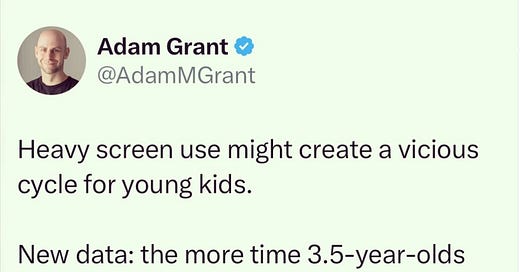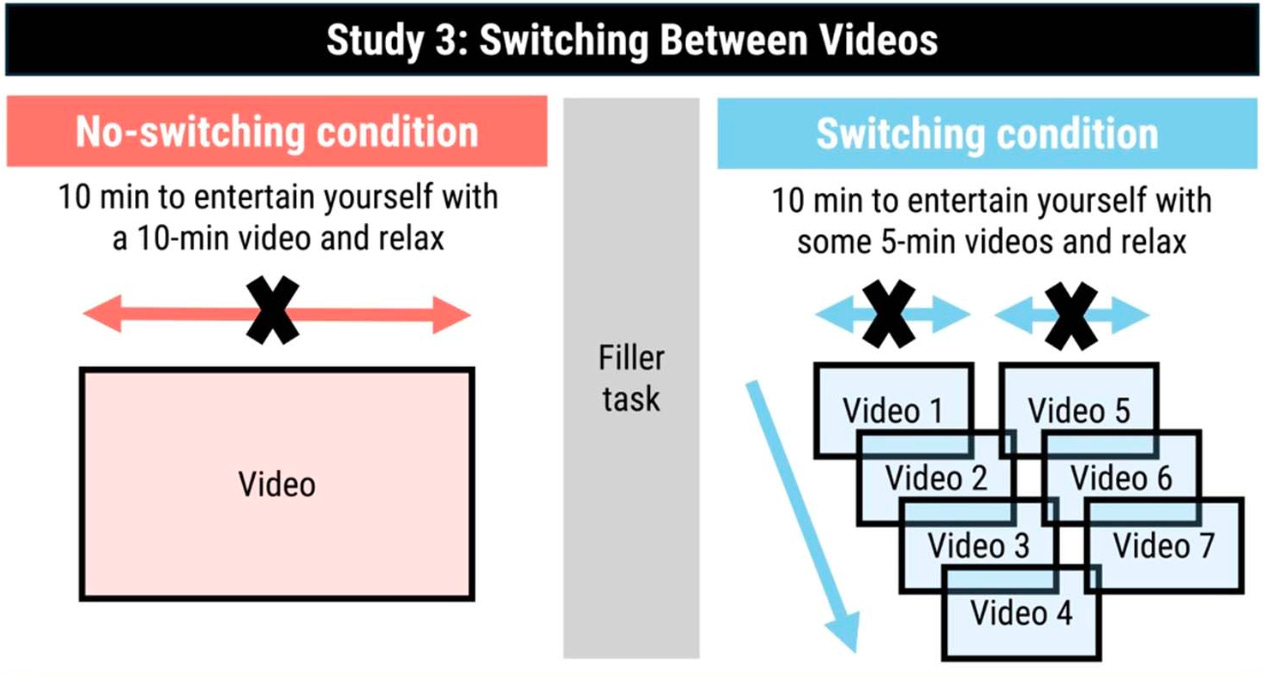Hello there, sapiens! It’s September! Back to school, back to routines, back to frantic mornings cutting up grapes for your son’s lunchbox that will return home untouched! And of course, back to a Techno Sapiens favorite: research roundups.
I’ve got a pile of fresh studies that, like my son’s grapes, have remained untouched until now, and I cannot wait to share them with you. Let’s dig in.
We’ve got studies on:
How TikTok and YouTube might actually increase boredom
Effects of tablet use on young kids’ anger
Whether (and why) parents and teens think life is harder for teens today
Reminder: to support Techno Sapiens and get full access to research roundups like this one, please consider a paid subscription (20% off right now!)
1. We scroll TikTok to avoid boredom. It might do the opposite.
People really do not like feeling bored. One way we try to avoid boredom is by watching videos on platforms like YouTube and TikTok, where we often engage in “digital switching,” or fast-forwarding and rapidly switching between videos and platforms.
But does this work?
This study is actually a collection of seven separate experiments, but we’ll focus on one particularly interesting one. Researchers recruited 205 college students and had them all watch videos in two different ways. In the “no-switching” condition, they watched one 10-minute video. In the “switching” condition, they were given 10 minutes and the option of 7 different 5-minute videos, free to switch among them whenever they wanted.
So, which condition left participants feeling less bored? We would assume that switching between videos would be better—but, actually, digital switching increased boredom. This also happened when researchers looked at switching within a video (i.e., fast-forwarding), and when participants were free to switch among YouTube videos of their choosing.
Why might this be? To actually feel less bored, we need experiences that are immersive (think of seeing a movie in a theater). When we’re repeatedly shifting our attention, we’re less able to engage with and make meaning from the content we’re seeing—and that makes us feel bored.
My take: This is my favorite kind of study finding—one where the things we assume about our own behavior (switching between these videos will make me feel less bored!) turn out to be completely wrong. Worth noting that findings were more mixed when researchers expanded their samples to older adults, and seemed to vary somewhat depending on the order of the conditions. But overall, it points toward the value of picking one video (or movie, or TV show, or—dare I say it—book?) and sticking with it.1 Journal of Exp Psych: General.
2. Are iPads making kids angry?
If you follow the public conversation around kids and screens, you’ve probably seen this one. And if you are a friend or family member of mine, you probably sent me Adam Grant’s Instagram’s post about it (see below).
So what’s the deal with this study?
Keep reading with a 7-day free trial
Subscribe to Techno Sapiens to keep reading this post and get 7 days of free access to the full post archives.






